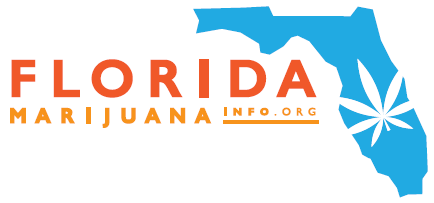by Catherine Avril Morris
You may have heard that Florida residents will vote this November on whether to pass a state constitutional amendment legalizing medical marijuana. Based on current statistics regarding public support for the amendment, it is likely to pass; according to several recent poll results, anywhere from 65% to 82% of Florida voters, including Democrats, Republicans and Independents, are in favor of the limited medical use of marijuana to treat illnesses such as cancer, HIV and Parkinson’s Disease.
How to Get a Medical Marijuana Card in Florida
Since medical marijuana is not currently legal in the state of Florida, patients there are not yet able to obtain a state-issued medical marijuana card or a medical marijuana recommendation from a physician. Similarly, doctors in Florida are not yet legally allowed to recommend cannabis to treat their patients’ illnesses and symptoms.
Once medical marijuana is legalized in Florida, physicians who are licensed in the state of Florida will be able to become certified to recommend medical marijuana for their qualifying patients. Since cannabis is not the same as medicines that are approved in controlled doses by the FDA, however, certified medical marijuana doctors in Florida will not be able to write actual prescriptions for marijuana.
Instead, after assessing a patient’s health, symptoms and medical history, confirming a diagnosis of a debilitating illness or condition, and determining that the potential benefits of marijuana outweigh the potential health risks for that patient, the doctor will give the patient a written certification to present to the Florida Department of Health. With that certification, the patient will obtain an identification card to use when purchasing medical marijuana from a dispensary that is licensed and regulated by the state.
In fact, it is this stipulation of the proposed amendment — that doctors will write recommendations for marijuana rather than prescriptions, for any condition the doctor deems “debilitating” that might be alleviated by marijuana use — that some opponents are highlighting in their arguments against legalizing medical marijuana in Florida. Their concern is that the language is too vague and open-ended, thereby allowing patients to obtain medical marijuana for even minor ailments.
What Does The Amendment Language Allow For?
Proponents of the amendment, on the other hand, point out that the language of the amendment does require doctors to recommend medical marijuana only for “debilitating” illnesses or conditions — those that “cause impaired strength, weakness or enfeeblement.” They believe that language is adequate for ensuring that Florida doctors will maintain high professional standards in determining which illnesses merit the use of medical marijuana.
If the medical marijuana amendment passes in Florida in November, licensed physicians who can issue marijuana recommendations will be listed in special directories for patients wishing to obtain a medical marijuana card. Web sites like MarijuanaDoctors.com, MedicalMarijuana.com and others, including sites that are region-specific, are already keeping databases of medical marijuana doctors in states where medical cannabis is legal, in order to connect patients with certified physicians and cannabis clinics. Florida doctors will join those directories once residents vote to legalize cannabis for medical use in Florida.
Marijuana Covered By Insurance
Whether medical marijuana will be covered by a patient’s health insurance policy is a separate issue, and one that will ultimately be left to the individual insurer to determine, as the proposed amendment in Florida does not require that insurers cover nonprescription drugs or supplements.
Catherine Avril Morris writes on subjects ranging from astrology to parenting, grief, and romance novels. Her role in the 1993 cult classic film Dazed and Confused may have laid the foundation for her interest in current events related to the legalization of marijuana. Find her at www.catherineavrilmorris.com.













 OMD Agency
OMD Agency
Recent Comments